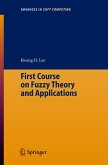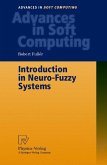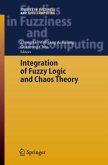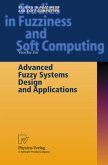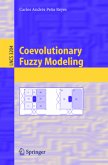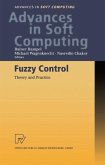This book is intended to be an undergraduate introduction to the theory of fuzzy sets. We envision, sometime in the future, a curriculum in fuzzy sys tems theory, which could be in computer /information sciences, mathematics, engineering or economics (business, finance), with this book as the starting point. It is not a book for researchers but a book for beginners where you learn the basics. This course would be analogous to a pre-calculus course where a student studies algebra, functions and trigonometry in preparation for more advanced courses. Chapters 3 through 11 are on fuzzy algebra, fuzzy functions, fuzzy trigonometry, fuzzy geometry, and solving fuzzy equations. However, after this course the student doesn't go on to calculus but to more specialized courses in fuzzy systems theory like fuzzy clustering, fuzzy pattern recogni tion, fuzzy database, fuzzy image processing and computer vision, robotics, intelligent agents, soft computing, fuzzy rule based systems (control, expert systems), fuzzy decision making, applications to operations research, fuzzy mathematics, fuzzy systems modeling, etc. Therefore, very little of most of these topics are included in this book. There are many new topics included in this book. Let us point out some of them here: (1) mixed fuzzy logic (Section 3.5); (2) three methods of solving fuzzy equation/problems (Chapter 5); (3) solving fuzzy inequalities (Chapter 6); (4) inverse fuzzy functions (Section 8.5); (5) fuzzy plane geometry (Chap ter 9); (6) fuzzy trigonometry (Chapter 10); and (7) fuzzy optimization based on genetic algorithms (Chapter 16).
Hinweis: Dieser Artikel kann nur an eine deutsche Lieferadresse ausgeliefert werden.
Hinweis: Dieser Artikel kann nur an eine deutsche Lieferadresse ausgeliefert werden.
From the reviews:
"A well written book which enables to the reader fundamental orientation in the fuzzy logic. From the educational point of view the book is very well organized. ... Majority of chapters begin with several motivation examples and at the end of each chapter there are a lot of solved and unsolved examples. ... dedicated to undergraduate students as a textbook. ... it may be suitable for readers from the application sphere who are not professionals in fuzzy logic but utilize some fuzzy methods ... ." (Petr Vysoky, Neural Network World, Vol. 13 (4), 2003)
"The book is an undergraduate textbook covering as an impressively broad range of topics ... . The book is well-written ... each of the chapters providing basic definitions, examples, and exercises. ... The book is intended as an introductory textbook on the theory of fuzzy sets, functioning as the basis for a curriculum in fuzzy systems. ... I would recommend the book to the reader who wants to get an introductory overview of how much of mathematics can be fuzzified." (Marc Pauly, Expert Update, Vol. 5 (2), 2002)
"This book is an undergraduate introduction to the theory of fuzzy sets, giving basic information for beginners. ... Each chapter ends with a set of relevant problems and exercises. ... The book can be recommended as a good textbook for students and beginners in computer science, engineering or economics interested in non-probabilistic uncertainty modeling." (R. Mesiar, Zentralblatt MATH, Vol. 985, 2002)
"A well written book which enables to the reader fundamental orientation in the fuzzy logic. From the educational point of view the book is very well organized. ... Majority of chapters begin with several motivation examples and at the end of each chapter there are a lot of solved and unsolved examples. ... dedicated to undergraduate students as a textbook. ... it may be suitable for readers from the application sphere who are not professionals in fuzzy logic but utilize some fuzzy methods ... ." (Petr Vysoky, Neural Network World, Vol. 13 (4), 2003)
"The book is an undergraduate textbook covering as an impressively broad range of topics ... . The book is well-written ... each of the chapters providing basic definitions, examples, and exercises. ... The book is intended as an introductory textbook on the theory of fuzzy sets, functioning as the basis for a curriculum in fuzzy systems. ... I would recommend the book to the reader who wants to get an introductory overview of how much of mathematics can be fuzzified." (Marc Pauly, Expert Update, Vol. 5 (2), 2002)
"This book is an undergraduate introduction to the theory of fuzzy sets, giving basic information for beginners. ... Each chapter ends with a set of relevant problems and exercises. ... The book can be recommended as a good textbook for students and beginners in computer science, engineering or economics interested in non-probabilistic uncertainty modeling." (R. Mesiar, Zentralblatt MATH, Vol. 985, 2002)


